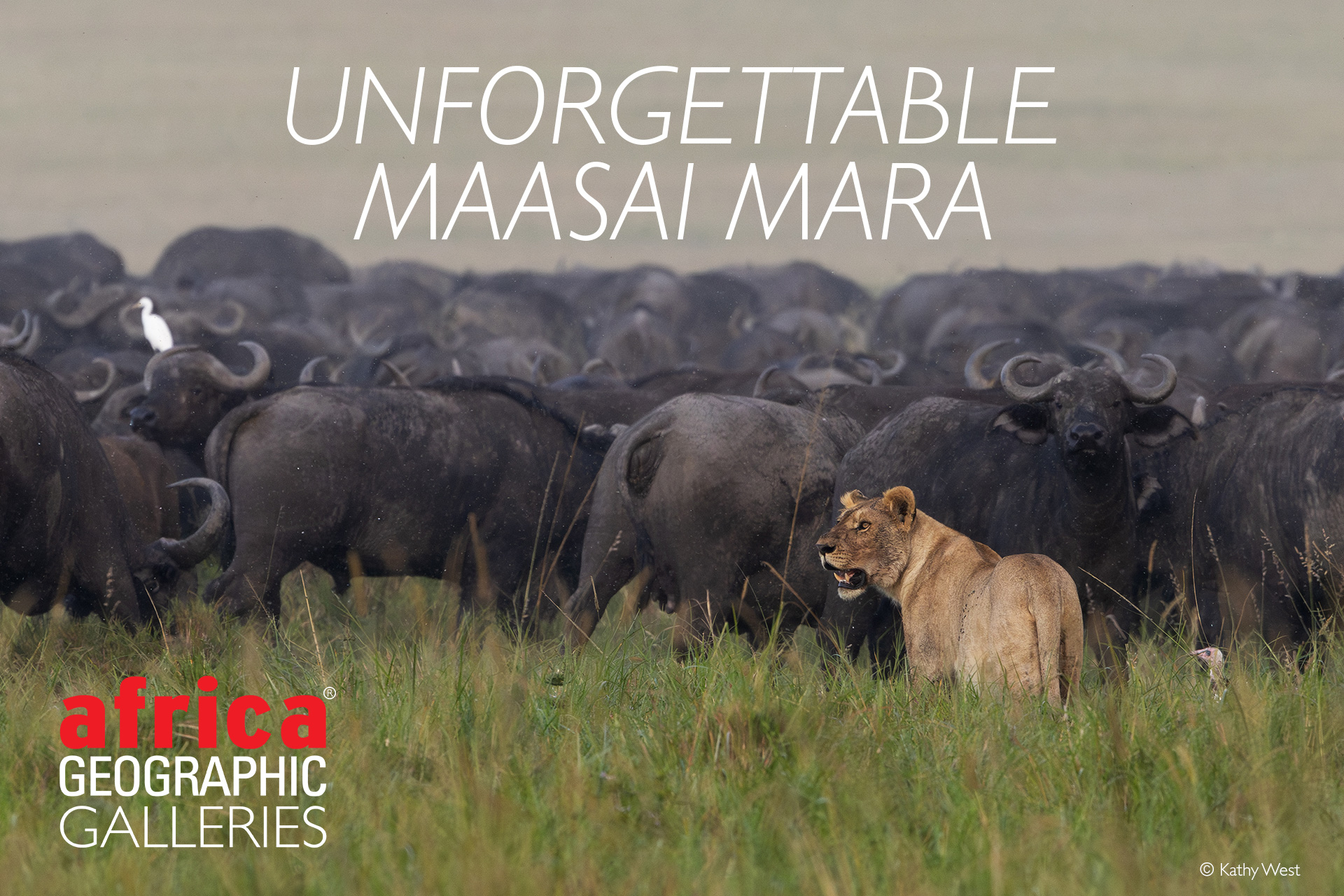
An unforgettable safari


After 11 years since her last African sojourn, primatologist Kathy West revisits the iconic Maasai Mara on an AG safari. From Sentinel Mara Camp’s sustainability to intimate wildlife encounters, her journey highlights the profound connection between conservation, photography, and the wild beauty of Africa.
It had been 11 years since I had been on my first safari. I’ve travelled to many places since that trip to Tanzania, including South and Central America, the Galapagos, Madagascar, Mexico, and Uganda. Still, few things fill me with the same contentment and happiness as being in the large expanses of the savannah and wooded hillsides of Serengeti National Park and the Maasai Mara National Reserve, with their enormous biodiversity. This past June, flying in low over the Musiara Airstrip, I caught a glimpse of a herd of giraffes, and I felt a deep sense of gratification that I could return to this incredible place.
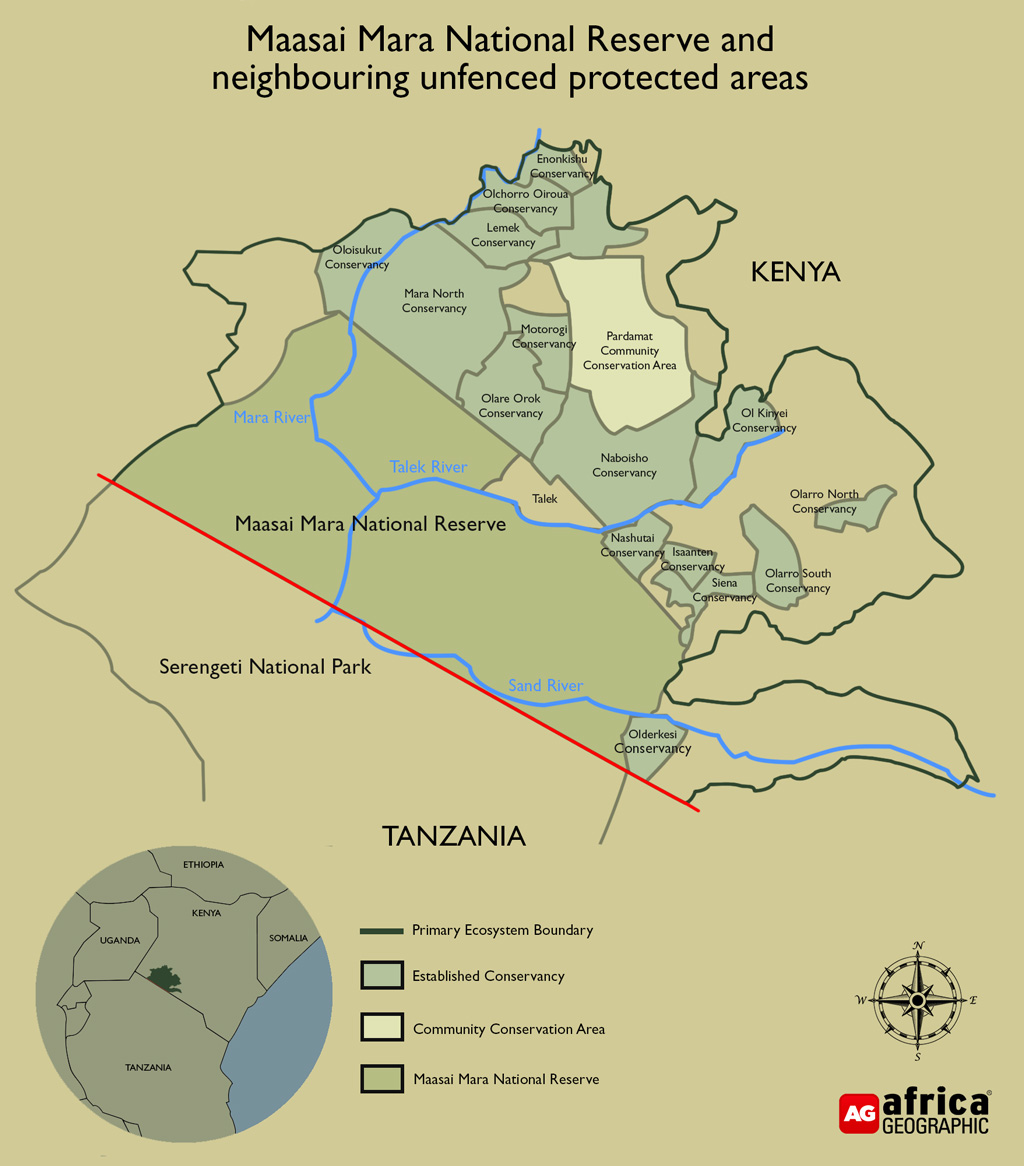
As a conservation photographer and primatologist, I spent months researching and looking for the perfect opportunity for a photo safari for myself and my husband. I was excited when I found this incredible opportunity with Africa Geographic. AG director Christian Boix arranged a magical 7-day trip for us at Sentinel Mara Camp on the banks of the Mara River. He carefully considered my requests to have a safari where we could have slow-paced drives to look at a diversity of animals, from insects to birds to elephants, explore interesting natural areas, and have plenty of time to watch and wait for an opportunity to take creative photographs. I wanted to go out just before dawn each morning and stay out all day until sunset, with a packed breakfast and lunch. My goal was to have many animals and few people, and I was grateful that we were able to experience that in the peaceful and elegant Sentinel Mara Camp. Everything was beautifully planned and executed, and the camp itself was perfect.
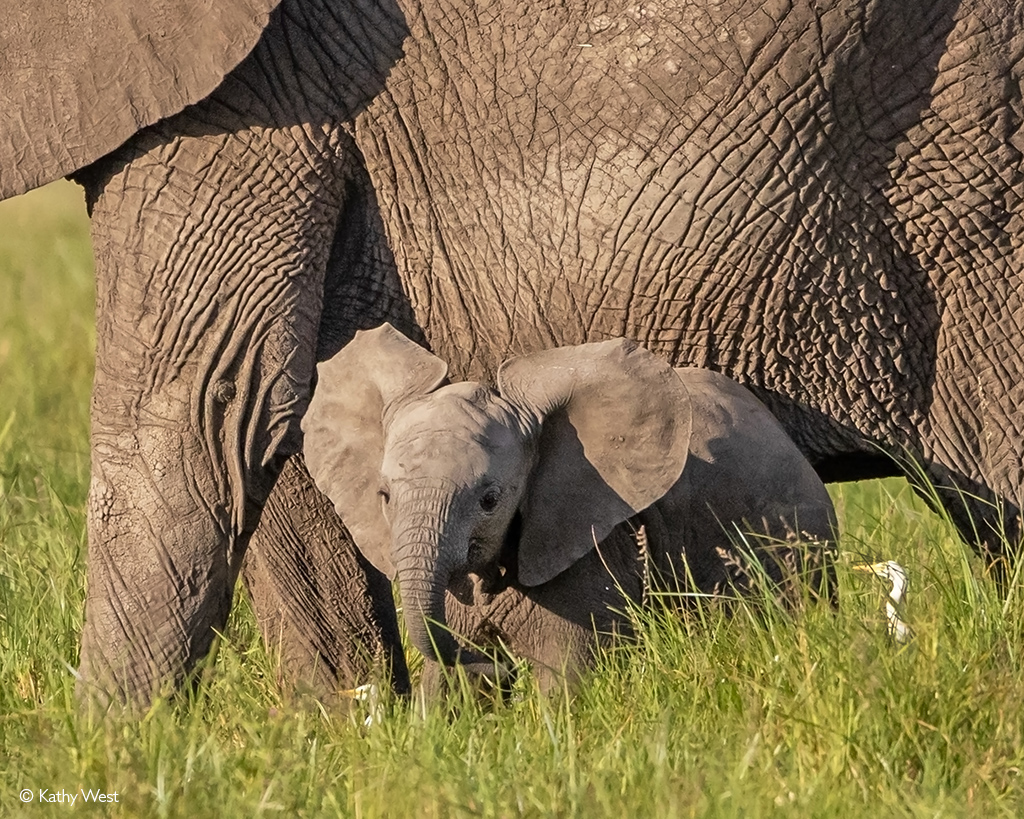
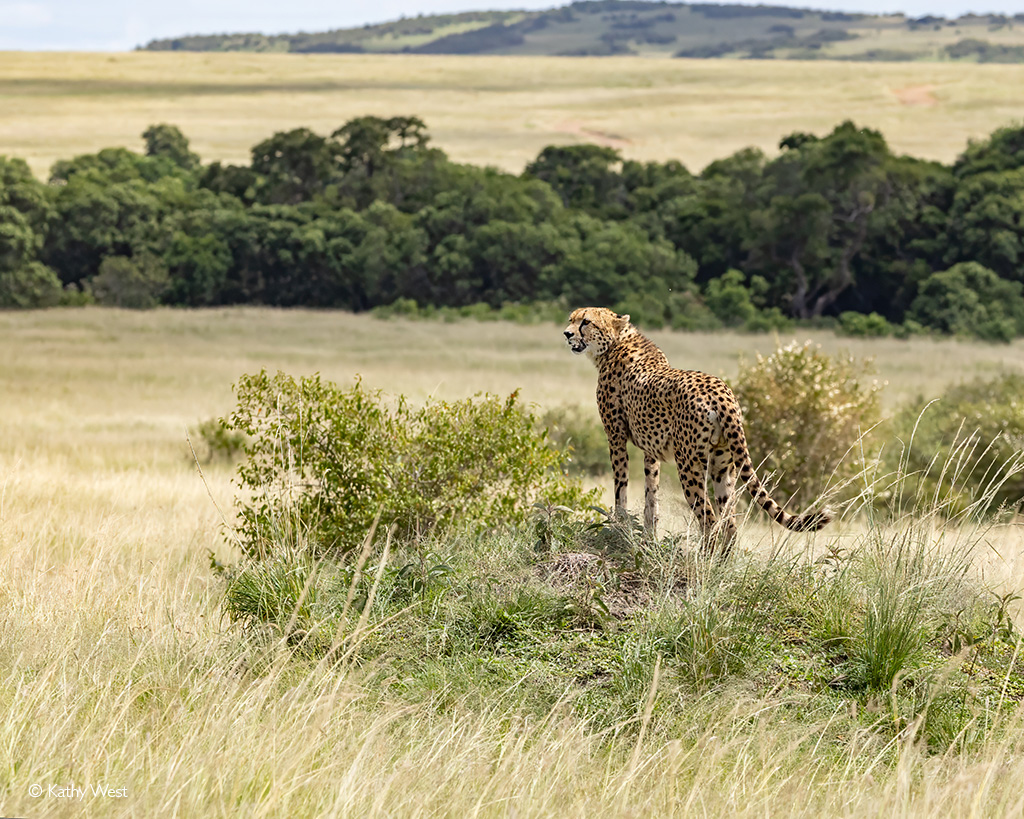
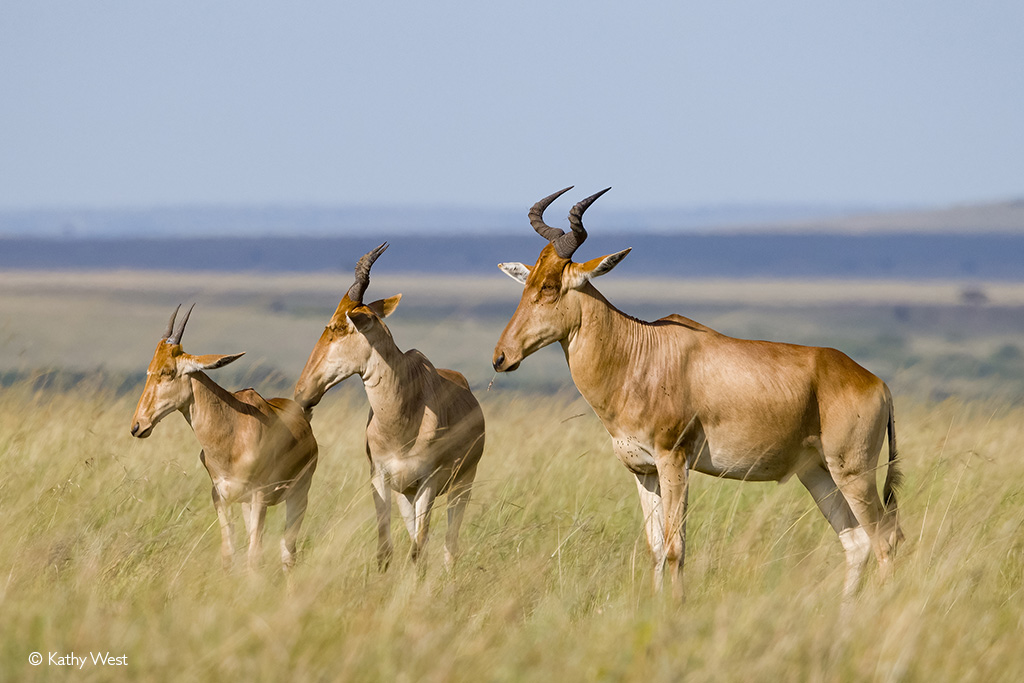
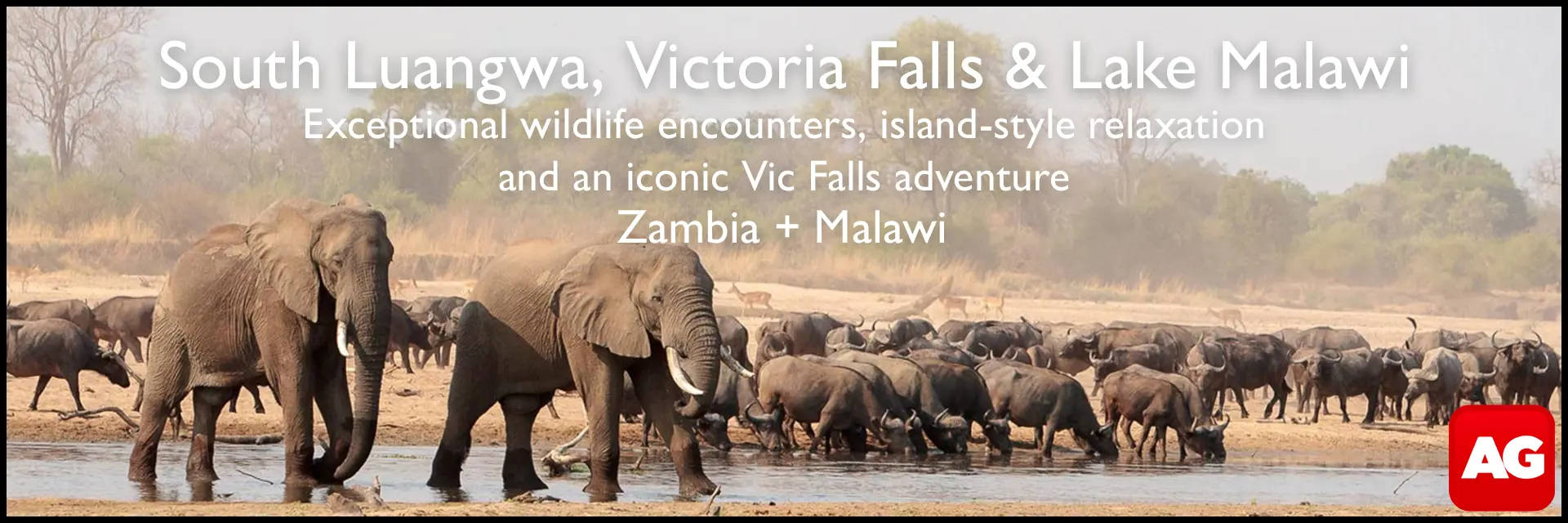
The perfect plan and the perfect guide
As a conservation photographer, I am committed to viewing wildlife and taking photos in the least intrusive and disruptive way possible. I appreciate the patience of ‘the wait’ and the enjoyment of watching an animal for long periods. To get the most honest image of the true nature of an animal, one must be nearly invisible, silent, patient, and respectful. If there is ever a question about my presence having a negative impact, I always choose the safety and stress level of the animal, and I will leave without “the shot.”
With my background in animal behaviour and desire to have a patient and understanding guide, I couldn’t have asked for a more perfect match than our Maasai guide, Benson Muli. We found a like-minded companion in Benson. We shared a mutual respect for wildlife and a belief in good ethics as visitors to the animal’s habitat, and we had many deep conversations about conservation. I was so impressed with Benson’s knowledge of all the animals, his ability to spot and predict their movements and behaviour, and his sense of knowing where to put me in the perfect position for my photographs. He consistently demonstrated strong ethics in respecting the animals, patience with my requests, excellence in driving and navigating the Mara, and kindness towards other guides and drivers. Benson also demonstrated impressive diplomacy with the rangers and wardens and high ethics in always putting the animals’ welfare above everything else. I learned so much from him and greatly appreciated his professionalism, knowledge, and insights.
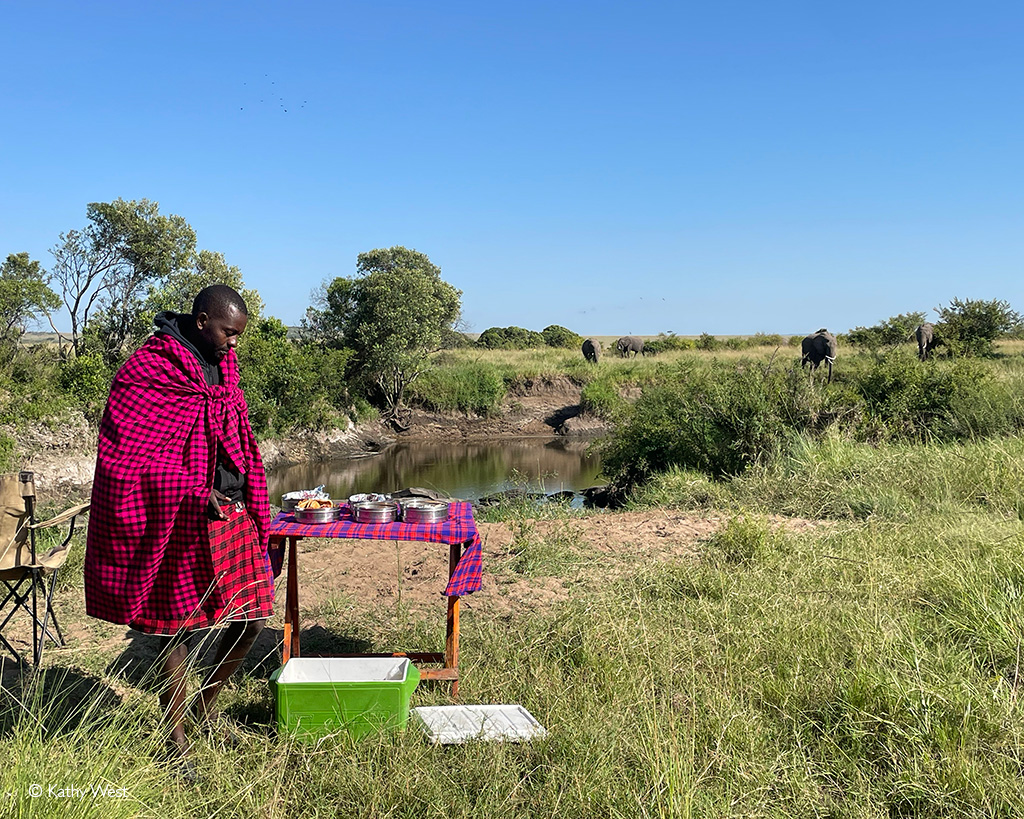
Celebrating the primates of Mara
I can happily watch primates for hours on end. We had some wonderful moments with a baboon troop just up the river from camp – settling into a large tree for the night, fighting on a precariously high branch, seeing juveniles being scolded and throwing temper tantrums with fear grimaces, and sweet, relaxed family moments of grooming and simply looking lovely in the early evening surrounded by tall flaxen grasses, shining in the setting sun.
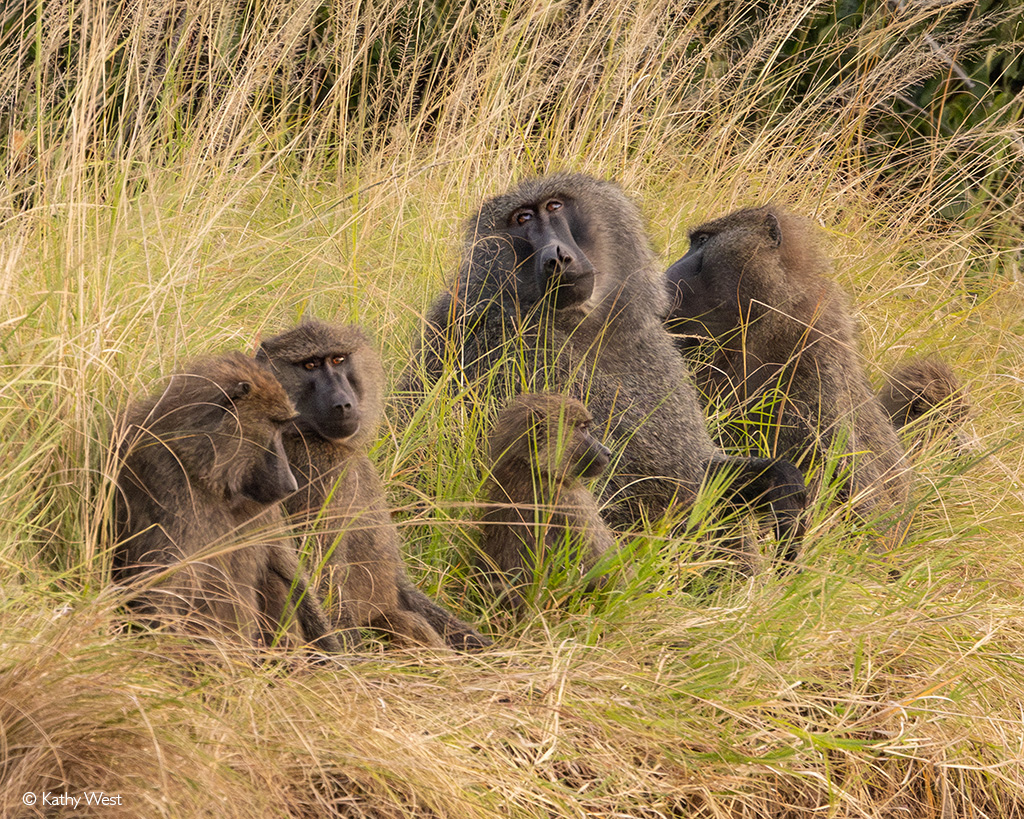
A new love for buffalo
I have entirely changed my perception of Cape buffalo. Previously, I thought they were just slow-moving, behaviorally and intellectually dull animals. I now know that I was wrong on all counts!
We had the opportunity to watch many buffaloes outsmart and outmanoeuvre hunting lions individually and when coordinating within the herd. I was impressed with how strategic they could be and how wise and caring they were for their herd members, willing to risk their own lives to help out a trapped member.
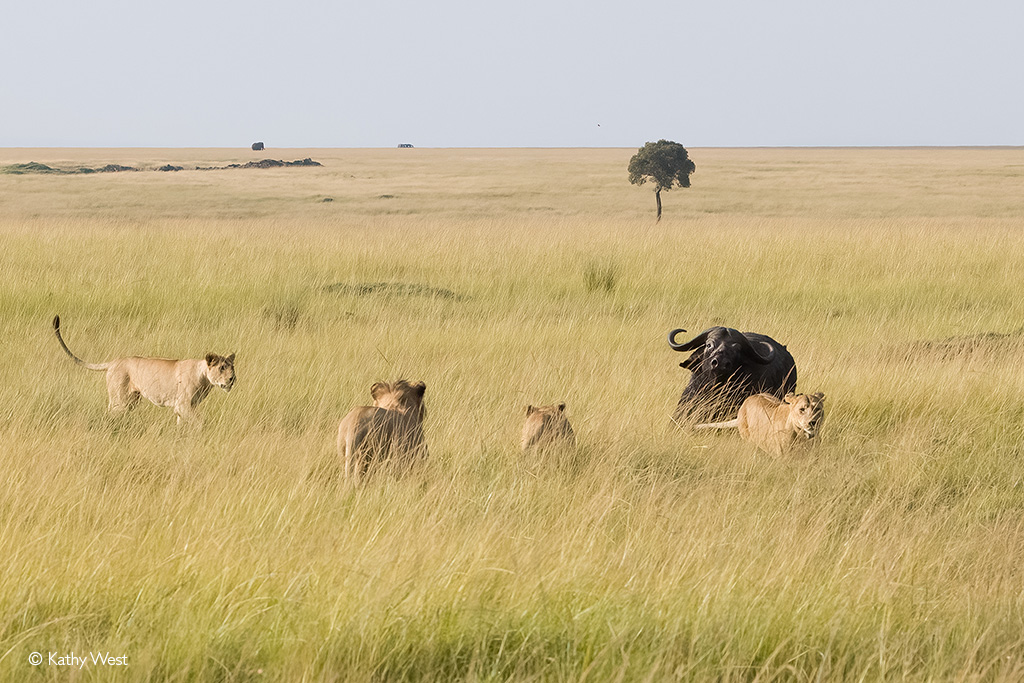
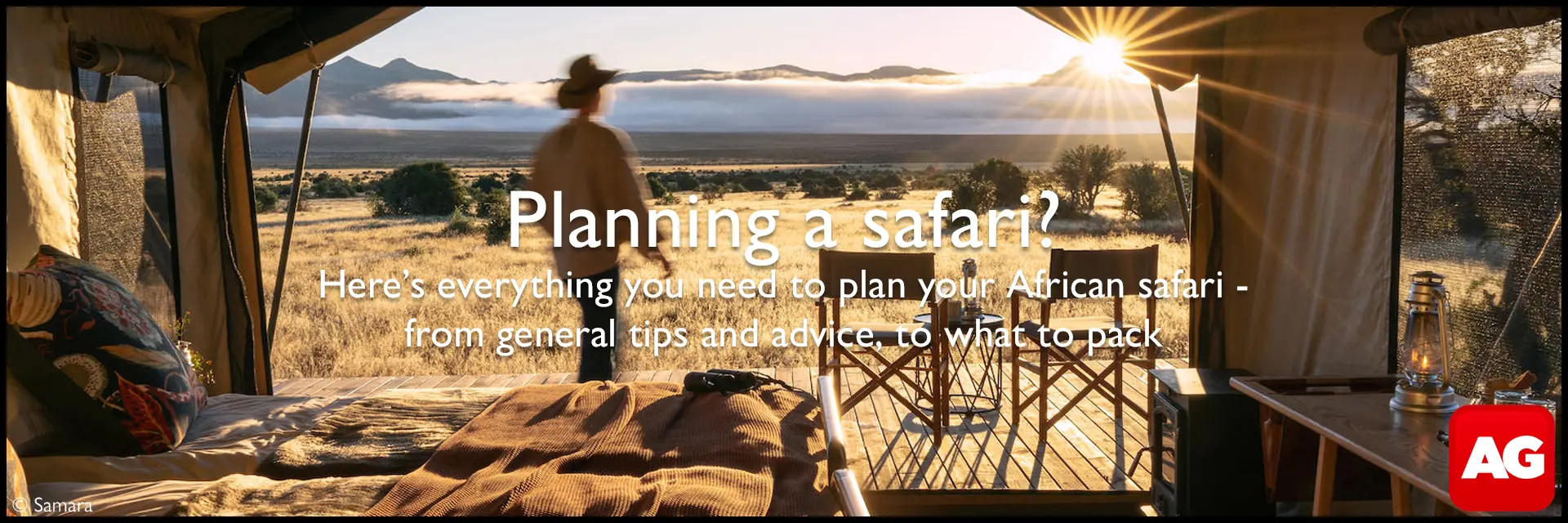
A magnificent Mara tower
From the moment that Benson picked us up at the airstrip to our return a week later, we were honoured to get to know a giraffe family based near the camp. The drive from Musiara airstrip to Sentinel Camp is only a short distance. Still, we began our safari the moment we arrived, and we spent hours watching these giraffes socialise, neck, forage, and move with their incredibly graceful gait.
 Want to visit Maasai Mara National Reserve for your next African safari? Check out our ready-made safaris to Maasai Mara here, or browse our other ready-made safaris.
Want to visit Maasai Mara National Reserve for your next African safari? Check out our ready-made safaris to Maasai Mara here, or browse our other ready-made safaris.
We were happy to begin our safari this way and were in no hurry to reach camp when we could watch the giraffe – lunch could wait! Each day had moments with this family, which included two adorable calves – we saw the family in the misty sunrises and golden sunsets necking, affectionately rubbing heads, mounting, foraging, and ‘flehming’ (an interesting lip curl that allows smells to reach the vomeronasal organ on the roof of their mouth which analyses the level of hormones in the female’s urine). We enjoyed every moment with them, getting to know each individual deeper. My favourite was the two-month-old calf with fuzzy pompoms on top of its ossicones.
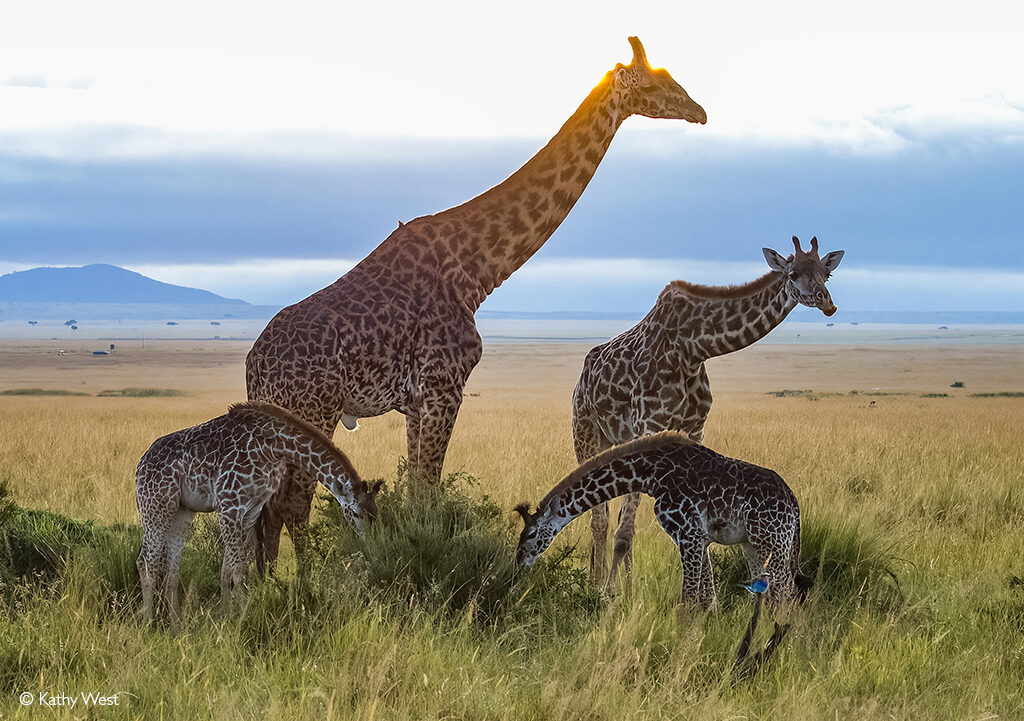
Lion cub antics and impressive kills
Returning 3 times over 2 days to a hippo carcass allowed us to watch a story of predators and prey and the stages of reducing a 1,800 kg animal to clean bones and rubbery skin. Subadult male lions one morning, females and cubs in the afternoon and hyenas, vultures, and jackals the following morning quickly consumed the hippo. Watching the young cubs experiment with chewing on the exposed tendons and strings of muscle was fun. Still young enough to be nursing, they were not very serious about getting nutrition from the carcass, but experimented with feeding between bouts of play. There were also several interesting social interactions where one of the youngest cubs was “asking” an older sibling to feed in a choice spot, getting reprimanded, showing a wide range of submissive postures and facial expressions, and finally receiving “permission” to feed.
On another occasion, we found ourselves within meters of a pride of lions feeding on a freshly killed buffalo. It gave us the experience of hearing (and feeling through the deep sounds) the grumbling, growling, and crunching sounds of feeding. This image was taken as we left the area – a lioness had eaten her fill and had fallen asleep with the animal’s leg as a pillow.
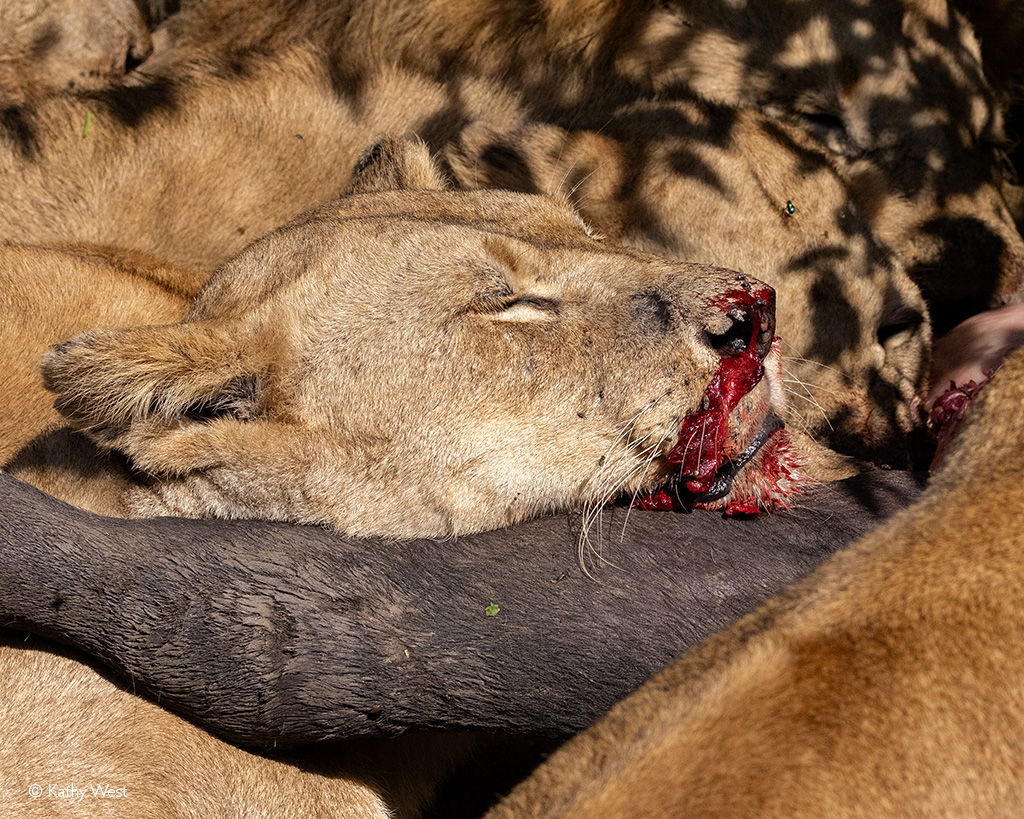
Drama on the marsh
Our last evening found us with the Marsh Pride on a fresh buffalo kill. About 500m away, we saw that a buffalo had just given birth and was going with the new calf towards her herd. Unfortunately, between herself and her herd was the entire Marsh Pride of 8 lions; behind her were many hyenas and jackals, and the herd was still a long distance away. The next 1.5 hours unveiled interesting strategies and behaviours from the buffalo, lions, hyenas, and jackals. In the end, the newborn calf and the mother buffalo were killed – emotionally difficult to watch, but a rare opportunity to capture images of a multi-species drama unfolding.
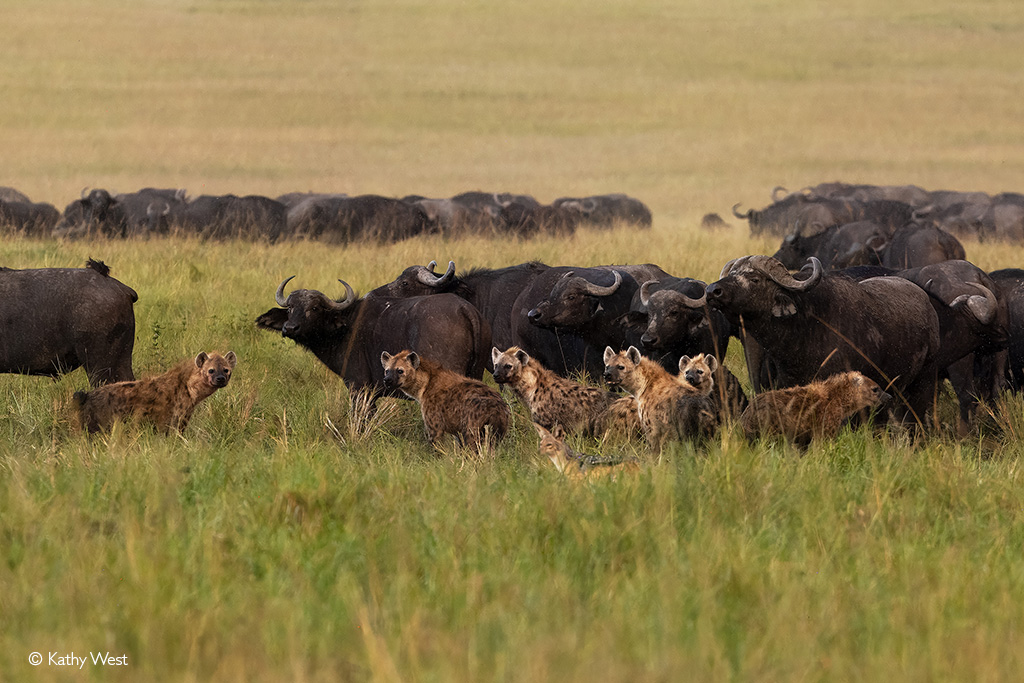
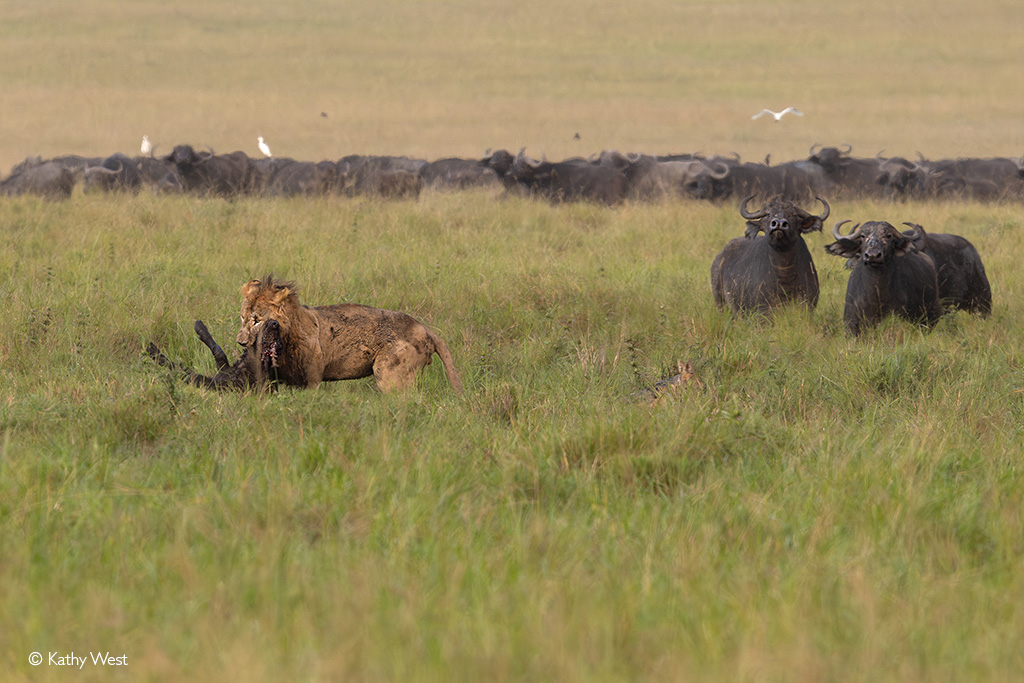
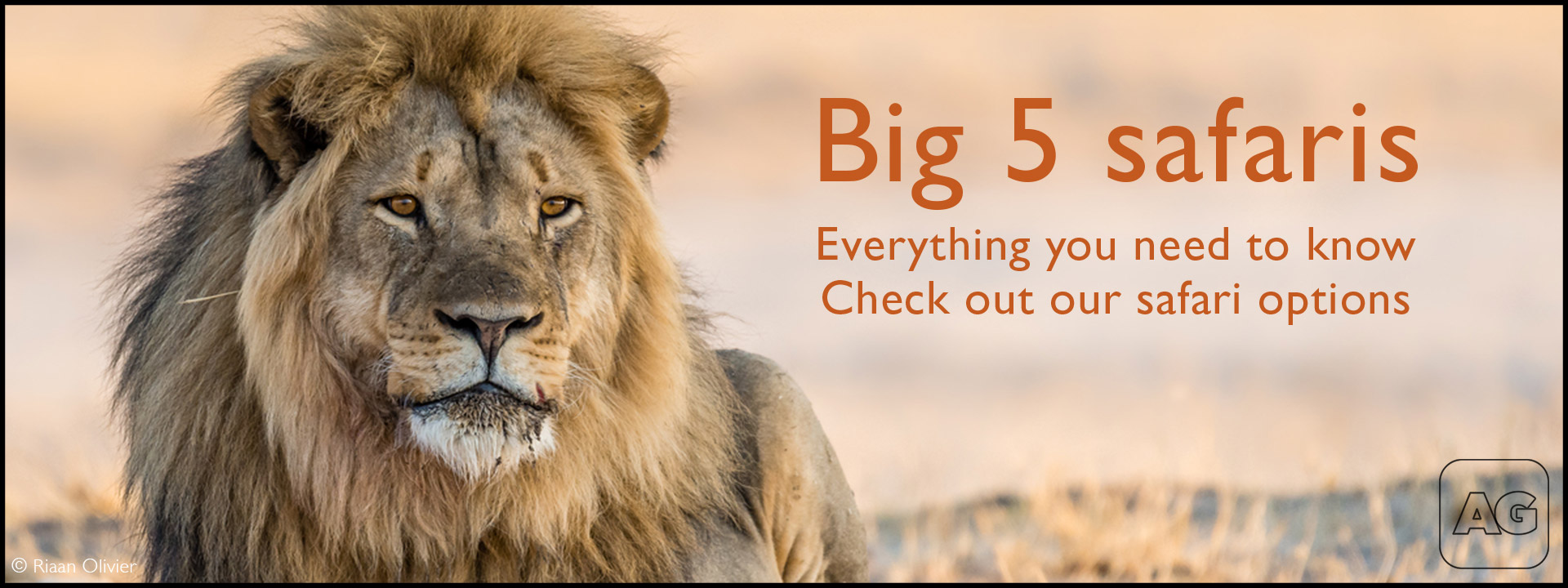
Birds, birds everywhere
The Mara has an exceptional diversity of bird species, and Benson was extremely knowledgeable about his bird identification, behaviours, and sightings. We were happy to take our time if we saw a bird, and he would help identify the species as I was able to capture images of birds on nests, with chicks, in the last evening light, foraging, parents returning to little ones on the nest, and raptors with prey. With Benson’s help, we got to know special locations to check as we came and went from camp, adding to the feeling of coming home on the Mara.
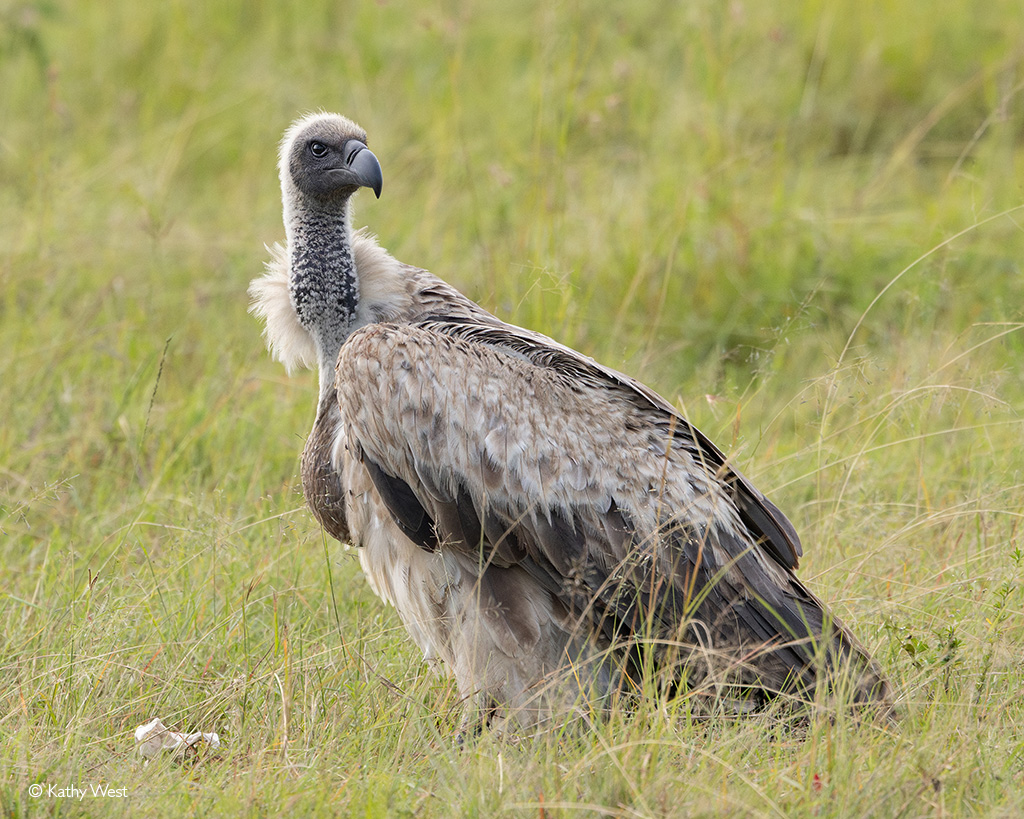
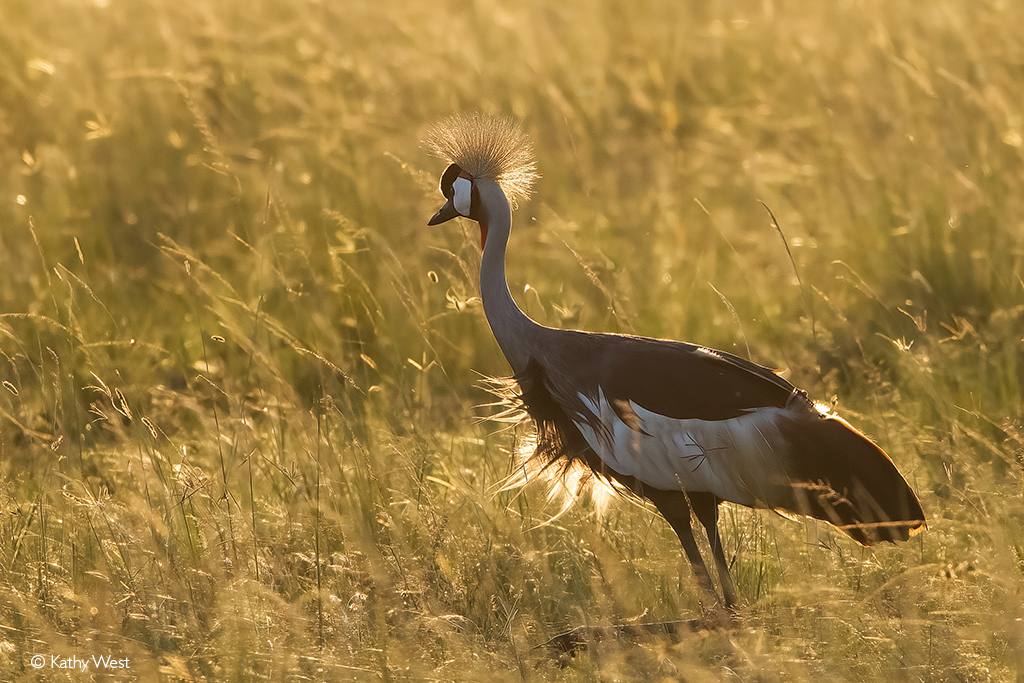
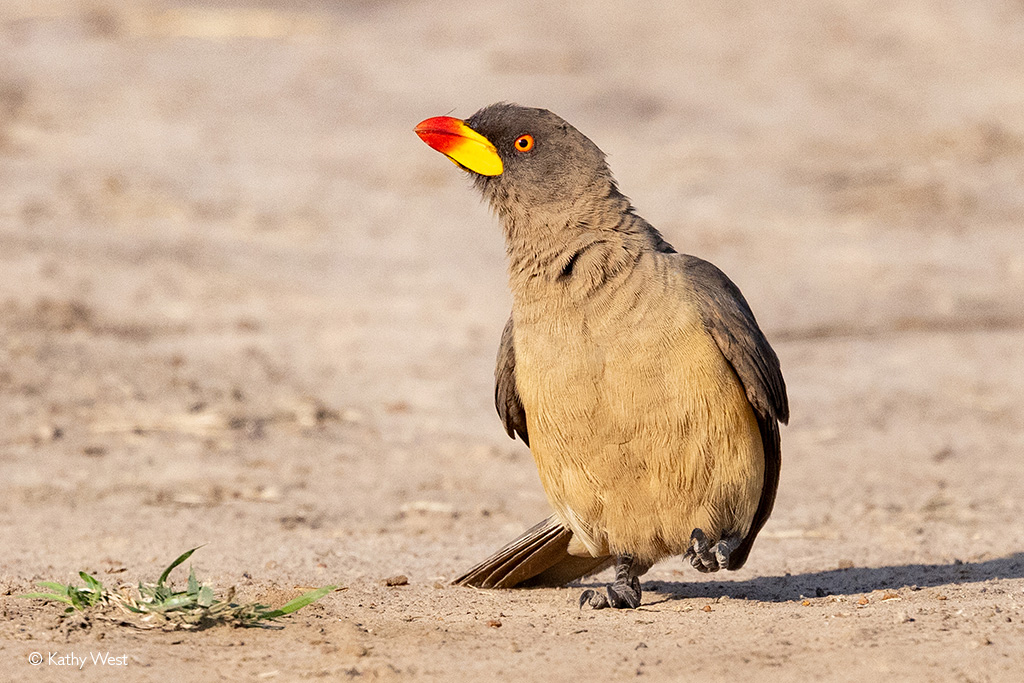
We had many magical moments. We watched grey-crowned cranes hunting in the golden sunset with their crowns lighting up with gold. We witnessed four predation events (my husband kept score like a football match – “cheetahs 1, impalas 1”; “buffalos 3, lions 4”). We enjoyed many hours of watching lions hunt and sleep and cubs play. And we had the privilege of watching the Marsh Pride walk right next to our vehicle.
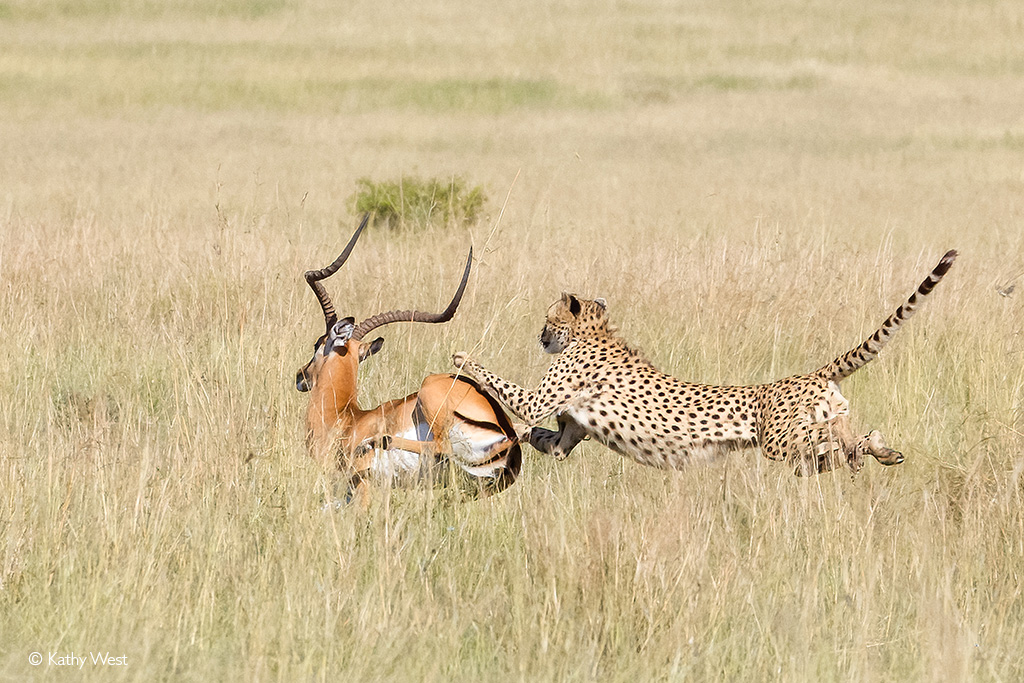
On one occasion, a lion being chased by a buffalo burst out of the bushes just meters away and ran right at us – not frightening, but definitely exciting. We spent quite some time watching the fascinating behaviours of a herd of zebra – affection, challenges, and fighting.
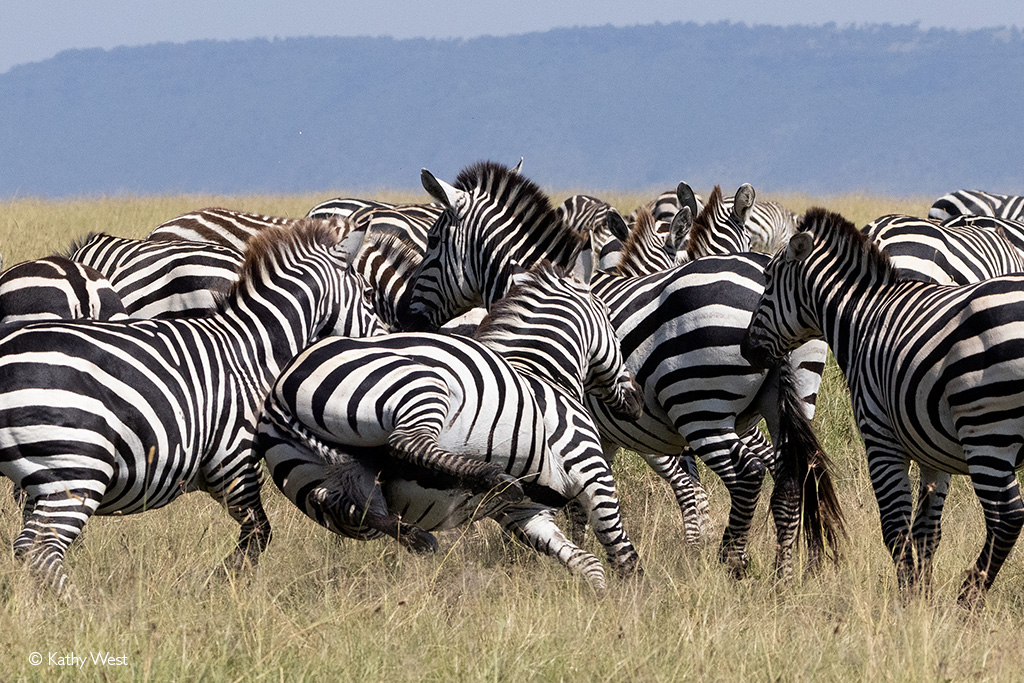
We also enjoyed breakfast by a river, with elephants grazing on the far side and hippos below us. We were served elegant meals alongside the vehicle with bright tablecloths, delicious food and incredible scenery. And Benson was an attentive waiter for our every need.
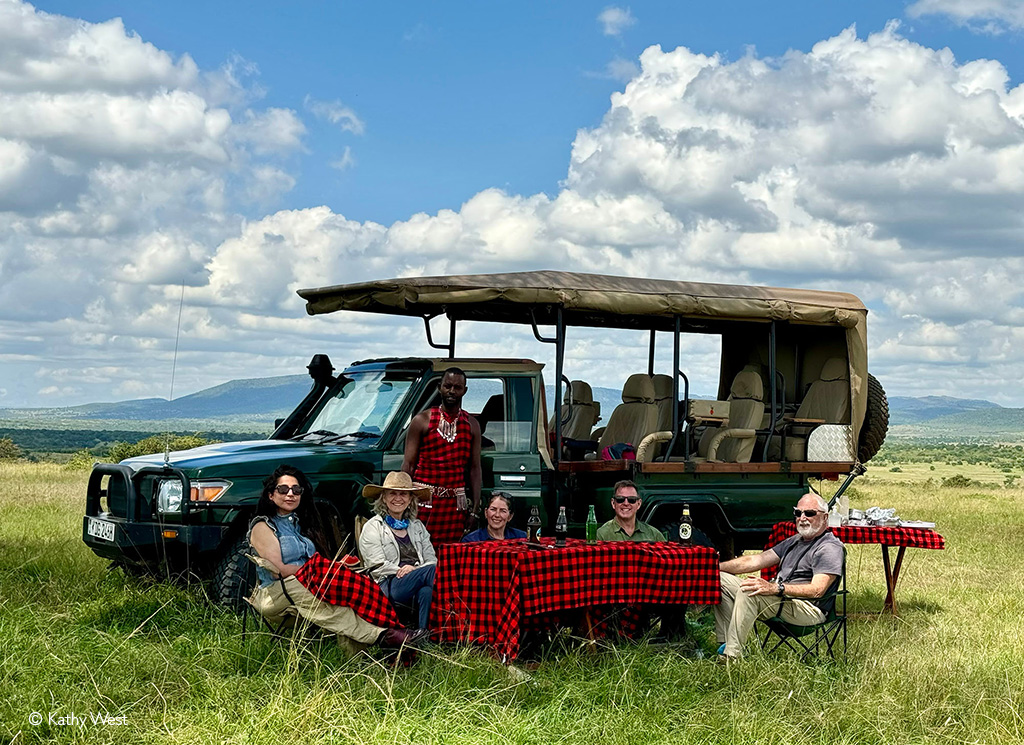
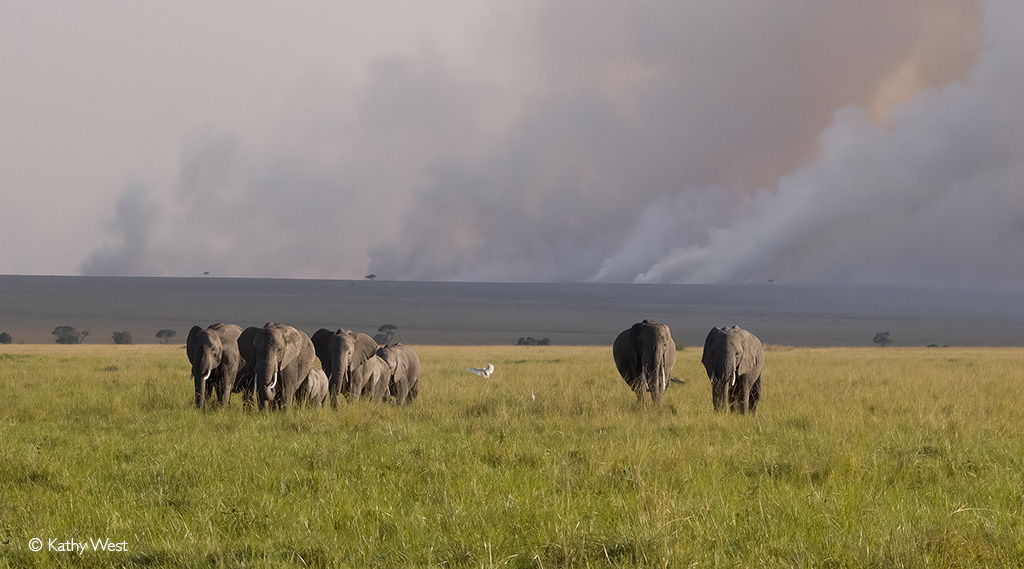
Sentinel Mara Camp
You can’t ask for a more stunning setting in a quiet and peaceful forest, just two minutes away from sunrise views of giraffes, elephants, cheetahs, buffalo, hippos, impala, eland, topi, dik-diks, serval, vervet monkeys, baboons, and lions. That was all just in our “backyard”!
The sustainable camp is run entirely on solar power. I appreciated all of the incredible details – from an utterly plastic-free camp to so many small comforts in the spacious tent, to our fantastic helper Jonathon, who cleaned our tent impeccably every day while we were out, tailored our showers to exactly our preferred temperature, took care of our laundry, and made sure we had our coffee and biscuits at the early hour we needed them to get on the trail before sunrise. Each meal, whether a picnic on the road or an elegant meal in camp, was delicious, and we were impressed with every person’s attentiveness to our preferences and dietary restrictions.
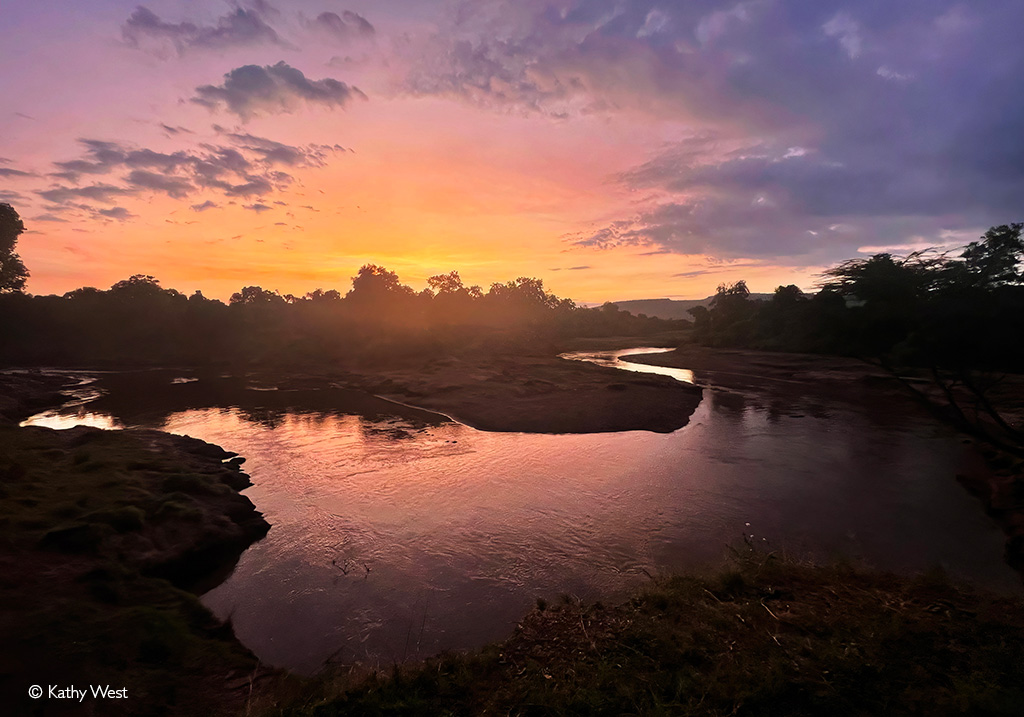
Each morning, when we climbed in the vehicle for our chilly start to the day, we’d find hot water bottles and a warm Maasai blanket on our seats. We started our day so cosy and comfortable.
One fun event at Camp was how the staff surprised us with a celebration for our wedding anniversary. We were the only ones in the camp that evening, and while we were enjoying the fire pit and the hippos softly grunting, we suddenly heard chanting coming out of the dark. The staff treated us to traditional Maasai chanting, singing, and dancing as they surrounded the fire and presented us with a special anniversary cake. An unforgettable experience!
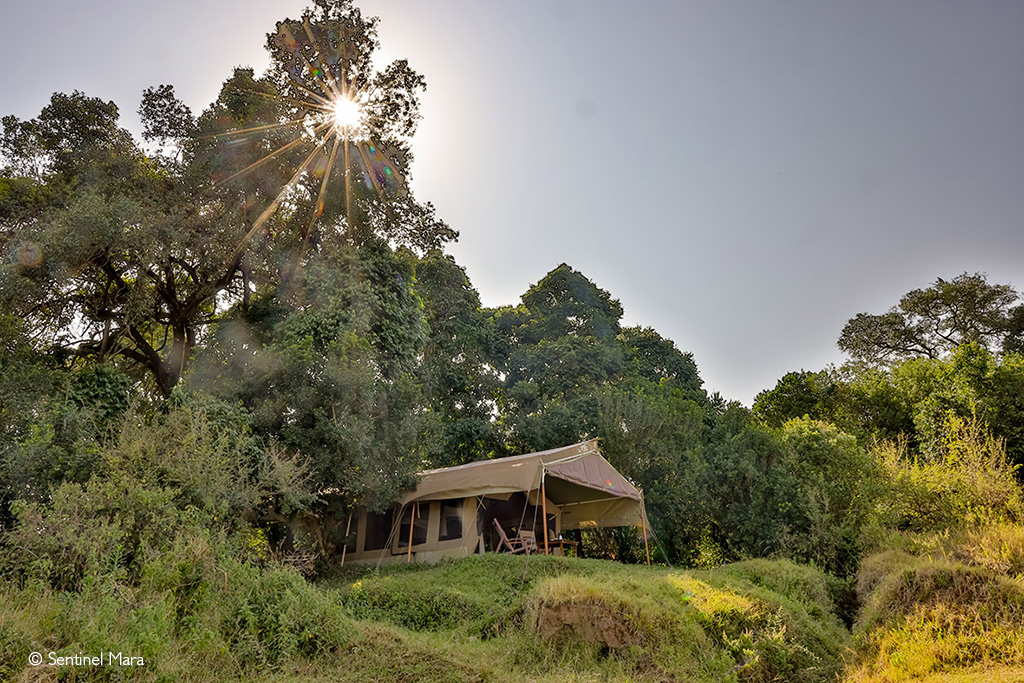
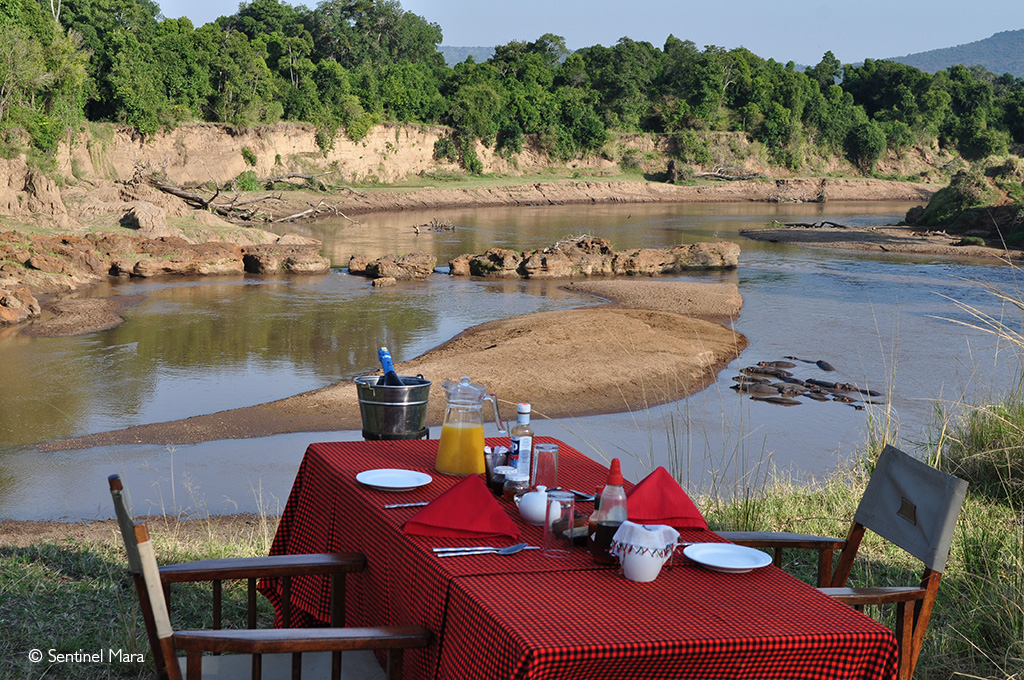
Further reading
- This interesting introduction to Kenya’s Maasai Mara will have you contacting Africa Geographic to book your next African safari. For all there is to know about Maasai Mara, read here.
- Oltepesi Tented Safari Camp in Mara North Conservancy is designed with photographers in mind – ideal for an epic Kenyan photographic safari. Read more here.
- See Ivan Glaser’s safari report-back and gallery, detailing his journey in the Maasai Mara with professional photographer Arnfinn Johansen and Africa Geographic. Check it out here.
About Kathy West
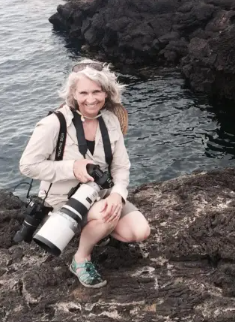 Kathy West is a wildlife conservation photographer, primatologist and educator. Kathy has spent her career finding ways to support conservation and communicate biodiversity’s distinctive beauty and incredible richness worldwide. Concerned about the primate extinction crisis, she founded Photography Inspiring Children in Conservation (PICC), teaching photography and sustainable capacity in conservation-compatible careers to youth in Africa and Central America. PICC empowers people in habitat-critical communities to support local ecosystem conservation and inspires children to become conservation leaders within their communities. The programme provides youths with skills, knowledge, and a passion for conservation through the arts of photography, illustration, and storytelling. Kathy hopes to help children directly impact the survival of a species by building a special emotional connection and knowledge of conservation actions they can take to build a healthy community where both the wildlife and their community can thrive.
Kathy West is a wildlife conservation photographer, primatologist and educator. Kathy has spent her career finding ways to support conservation and communicate biodiversity’s distinctive beauty and incredible richness worldwide. Concerned about the primate extinction crisis, she founded Photography Inspiring Children in Conservation (PICC), teaching photography and sustainable capacity in conservation-compatible careers to youth in Africa and Central America. PICC empowers people in habitat-critical communities to support local ecosystem conservation and inspires children to become conservation leaders within their communities. The programme provides youths with skills, knowledge, and a passion for conservation through the arts of photography, illustration, and storytelling. Kathy hopes to help children directly impact the survival of a species by building a special emotional connection and knowledge of conservation actions they can take to build a healthy community where both the wildlife and their community can thrive.
In June and July 2024, the PICC projects included school children and conservation partners in Musanze/Volcanoes National Park, Rwanda; students and conservation youth in Buhoma-Bwindi Impenetrable National Park, Uganda; and students and conservation youth in Rwenshama, Queen Elizabeth National Park, Uganda.
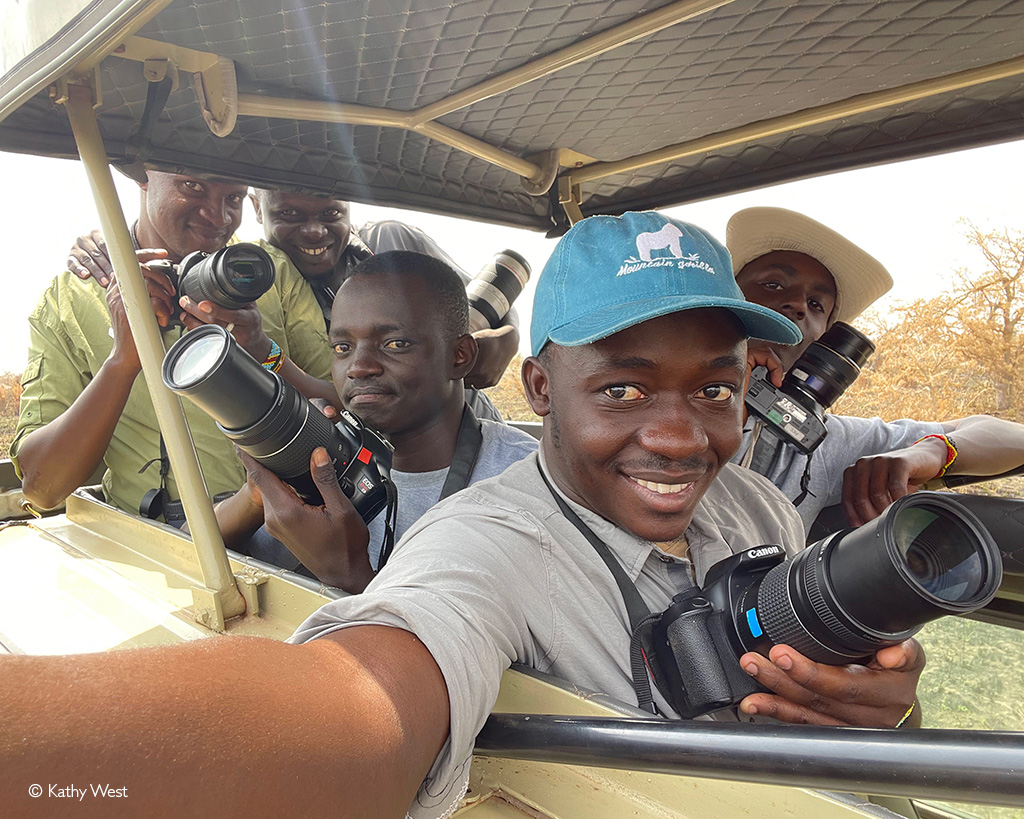
To comment on this story: Login (or sign up) to our app here - it's a troll-free safe place 🙂.![]()




